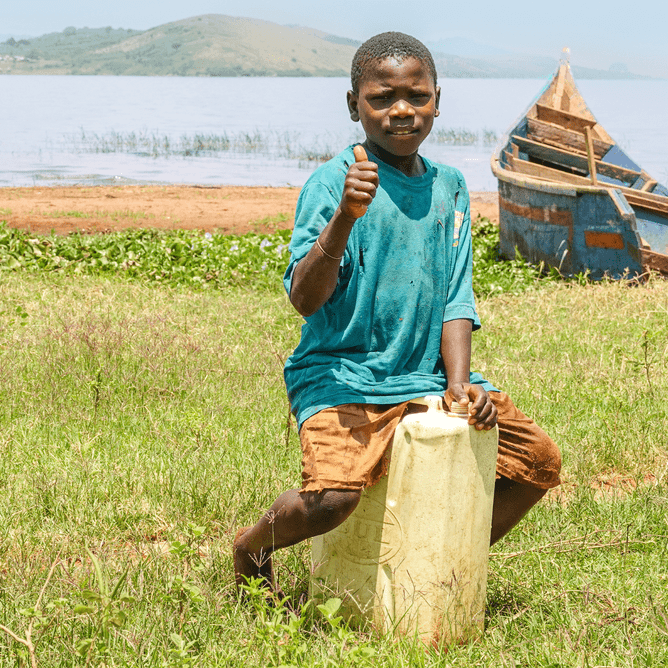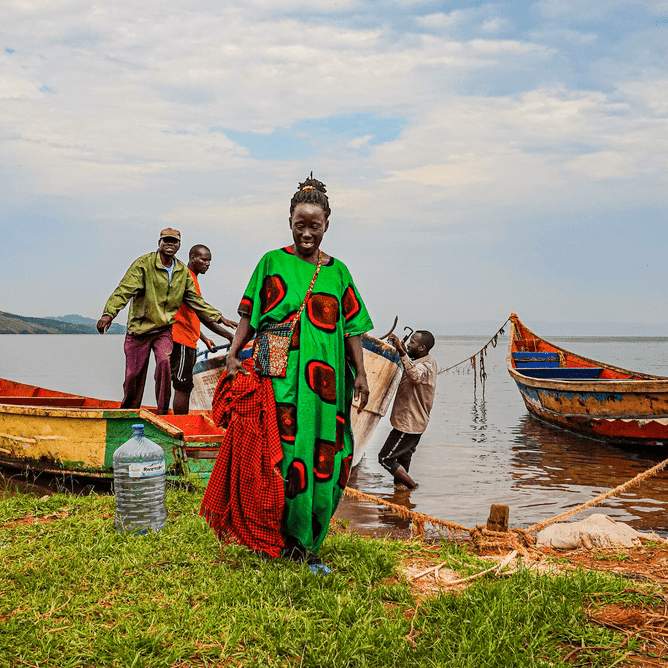MAF is planning to use a floatplane to link isolated people in island communities to essential services.
In the heart of East Africa lies Lake Victoria, the largest lake on the continent - it stretches far and wide, connecting Uganda, Kenya and Tanzania. Scattered across this vast expanse are around 3000 islands in Lake Victoria.
Some are tiny, but many are large and inhabited. Northwest on the Ugandan shore is the Ssese Islands group with 84 islands, home to communities who face daily challenges that most of us can only imagine. Isolated from the mainland, these islanders lack access to basic necessities - education, healthcare, and spiritual support.
“Here in Uganda, some of the most isolated people live on the islands of Lake Victoria,” shares Ruth Jack, MAF’s Country Director in Uganda.
“Their access to education, health services, and the gospel is very limited. That is why we would like to have a floatplane - an amphibious aircraft- to serve these communities and transform lives.”
MAF is currently seeking to purchase a floatplane suitable to operate on the waters of Lake Victoria, to bring help, hope and healing to people on the island communities.
These islands, while close in proximity, are worlds apart in accessibility. For residents to visit neighbouring islands, they must first return to the mainland with one boat, which can be a journey of many hours, and endure long waits for the next available boat to reach the destination. This isolation not only limits opportunities but also endangers lives.
A safe way forward
Sam Baguma, Deputy Country Director, MAF Uganda, visited one of the Islands in the archipelago, Lingila island, to do some research and talk to the islanders.
He recalls the conversation with Bishop Misango Fred, who highlighted the struggle of local church networks.
“He spoke of wanting to reach all the 84. But without reliable transport, it’s nearly impossible to sustain connections or provide consistent support,” said Sam.
“A floatplane would change everything - not just for the churches but for schools, healthcare workers, and other organisations that want to contribute to the development of the Islands, that will affect every person living on these islands.”
For educators, the barriers are immense. As Bishop Misango Fred notes, recruiting teachers willing to brave the difficult conditions is nearly impossible. “To get teachers who are ready to move here is a real problem,” he explains.
A floatplane could make these journeys safer and more manageable, encouraging growth and development across the region.
Lives at risk
The risks of travel on Lake Victoria are painfully real. Bishop Misango recounts a tragic incident.
“We were returning from a conference when a storm struck. Our boat made it back safely, but another group wasn’t as fortunate. Their boat overturned, and one person lost their life,” he says.
These dangers are all too common, with overcrowded dugout canoes and unpredictable weather leading to countless accidents.
“Providing a safe mode of transport removes these risks,” says Sam. “It would transform not just transportation but the lives of those who feel isolated and forgotten.”
A vision of hope
From MAF Uganda’s base at Kajjansi Airfield, the team is determined to bring help, hope and healing to the islands. The floatplane would not only deliver the gospel but also medical supplies, educational resources, and life-saving connections.
Bishop Misango expresses with gratitude, “Thank you for thinking about us. Your support means so much to us. May God bless you abundantly.”
STORY & PHOTOS / PAULA ALDERBLAD

